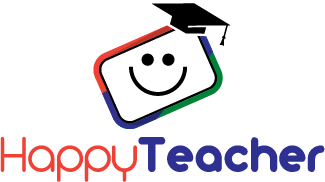
Course Description
This course focuses on applying the principles of neuroscience and positive psychology from Dr. Shawn Achor’s, Happiness Advantage. Through this course, educators will gain valuable insights into how these principles can improve students’ cognitive abilities, memory retention, concentration, focus, and creativity, while also promoting respect for diversity and establishing an environment for learning. The course will also provide educators with effective communication and conflict resolution skills that can reduce bullying, improve student engagement, and classroom behavior. This course will also delve into different personality types. Understanding Myers-Briggs personalities can help educators create a more inclusive and supportive learning environment and work culture. Educators will learn to manage their classrooms better, enhance communication, promote professional collaboration, and engage in reflective practices.
Upon completion of this course, the participant will be able to:
- Identify evidence-based practices for promoting a positive brain and develop strategies for implementing these practices in both personal and professional environments.
- Analyze the drama triangle and cultivate skills to avoid workplace gossip and negative communication patterns.
- Explain the principles of effective conversation and develop habits that foster improved listening and inquiry skills.
- Describe the characteristics of different personality types according to the Myers-Briggs Type Indicator, identify the strengths of each personality, and acknowledge the learning preferences of each type. Develop strategies for meeting the needs of diverse learners.
- Analyze the three major root causes of conflict and implement the Reflect-Empathize-Logic framework to solve workplace and classroom conflicts.
- Identify strategies and collaborate with peers to build better connections with students, including active listening, building rapport, and providing meaningful feedback.
Course Instructors
M.Ed. Talented and Gifted
If you are eligible, this degree qualifies for the TEACH grant. Click HERE for more info.
This MA program does not include licensure. Check with your state on licensing requirements
| Course Number | Semester Credits | Course Title(s) |
|---|---|---|
| Happy Teacher Courses | 12 | Building a Positive School AI in Education Time Management Integrating Social-Emotional Learning *Other Happy Teacher courses may be substituted |
| EDU 512 | 3 | Educational Research Methods |
| EDU 531 | 3 | Teaching & Working in a Multicultural Setting |
| EDU 590 | 3 | Capstone Seminar |
| SPED 539 | 3 | Introduction to Gifted Education |
| SPED 540 | 3 | Methods and Curriculum: Gifted Education Prek-12 |
| SPED 541 | 3 | Administration & Supervision of Gifted Programs |
| SPED 542 | 3 | Practicum: Gifted Programs |
| EDU 516 | 3 | Best Practices: Research-Based Teaching Strategies |


